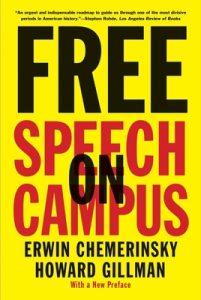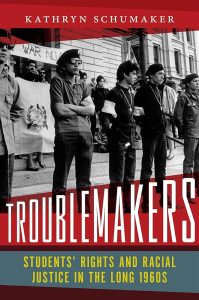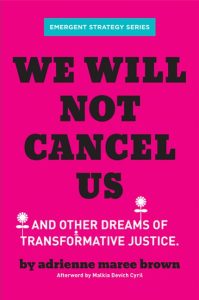1 National Perspectives



This section provides online and print resources including websites, guides, reports, and books regarding free speech on campus from a broader, national perspective within the United States. We encourage you to explore the different organizations listed here as well as browse the book titles to discover various perspectives, resources, and histories related to free speech and intellectual freedom.
Online Resources:
This document by the American Civil Liberties Union (ACLU) provides an introduction to the issue of free speech as defined in the First Amendment of the US Constitution and the impacts the First Amendment has on public universities, like the University of Washington. Structured in a Q&A format, this document is a helpful starting point for getting to know the legal history, specifically the Supreme Court cases that inform free speech on public college campuses today.
Campus Free Speech Guide by PEN America
This detailed guide from PEN America, a non-profit organization based in New York City aimed at raising awareness of protecting free speech in the United States and worldwide founded in 1922, offers resources for students, faculty, and staff on a variety of topics related to free speech issues on college campuses including invited speakers, hate expression, discrimination and harassment, student protest, and academic freedom.
FIRE (Foundation for Individual Rights in Education) Guide to Free Speech
FIRE is a non-profit civil liberties group based in Philadelphia that was founded in 1999. Now in its second edition, this in-depth guide provides a history of various free speech cases throughout American history, covers various facets on free speech issues from a theoretical and legal perspective, and concludes with an analysis of a number of contemporary free speech cases on college campuses.
This 16-page report by the University of Chicago Forum for Free Inquiry and Expression and The Associated Press-NORC Center for Public Affairs Research is based on a nationwide poll conducted from September 7 to 11, 2023. The report offers data regarding the complex nature of public perception and opinion on how university campuses should handle free speech issues.
Resources for Student Journalists, Student Press Law Center
An important component of free speech on college campuses is the free press rights of student journalists. The Student Press Law Center (SPLC), a non-profit, nonpartisan organization based in Washington D.C. founded in 1974, offers a variety of resources and suport for student journalists and their advisers. Their FAQ for student journalists is a good starting point. They also offer a free legal hotline run by professional staff for more immediate questions and guidance.
Books
Free Speech on Campus by Erwin Chemerinsky and Howard Gillman
This recently published work addresses the complexities of free speech on university campuses in the twenty-first century from the perspective of a university chancellor and a law school dean (both constitutional scholars). The authors delve into the tension and necessity that universities protect free speech while providing a supportive learning environment for students of different backgrounds and identities.
Troublemakers: students’ rights and racial justice in the long 1960s by Kathryn Schumaker
This book offers critical context for the history of free speech and students rights in the United States. Troublemakers traces how Black and Chicano teenagers in the 1960s challenged racial discrimination in American public schools, leading to the landmark 1969 Supreme Court Case Tinker v Des Moines that established free speech protections for students and formally recognized the First Amendment rights of students.
The Fight for Free Speech: Ten Cases That Define Our First Amendment Freedoms by Ian Rosenberg
This practical guide written by media lawyer Ian Rosenberg delves into ten contemporary free speech cases—from Colin Kapernick taking a knee to student walkouts for gun safety—as a way to understand how free speech protections came to be in the United States and how they might develop in the future. This handbook articulates free speech as a critical means of combating authoritarianism.
We will not cancel us: and other dreams of transformative justice by adrienne maree brown
This book by activist and writer adrienne maree brown offers a thoughtful and caring exploration of the complexities of cancel culture from a Black queer feminist viewpoint. In this short but powerful work, brown engages with questions of accountability and restorative justice in examining the differences between abuse, harm, and conflict.

